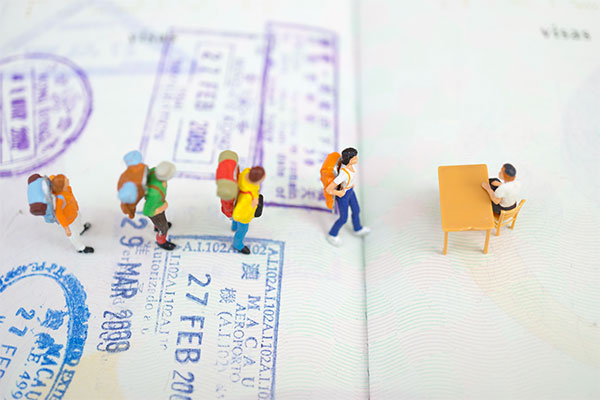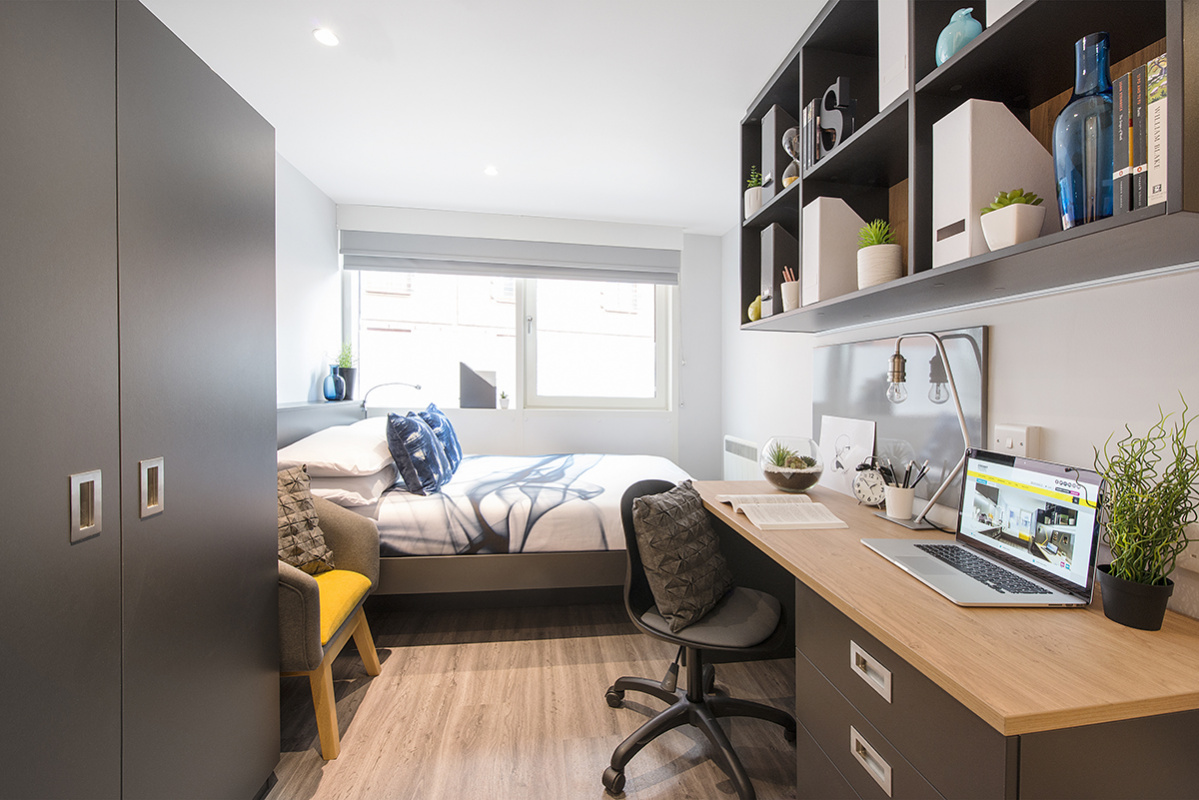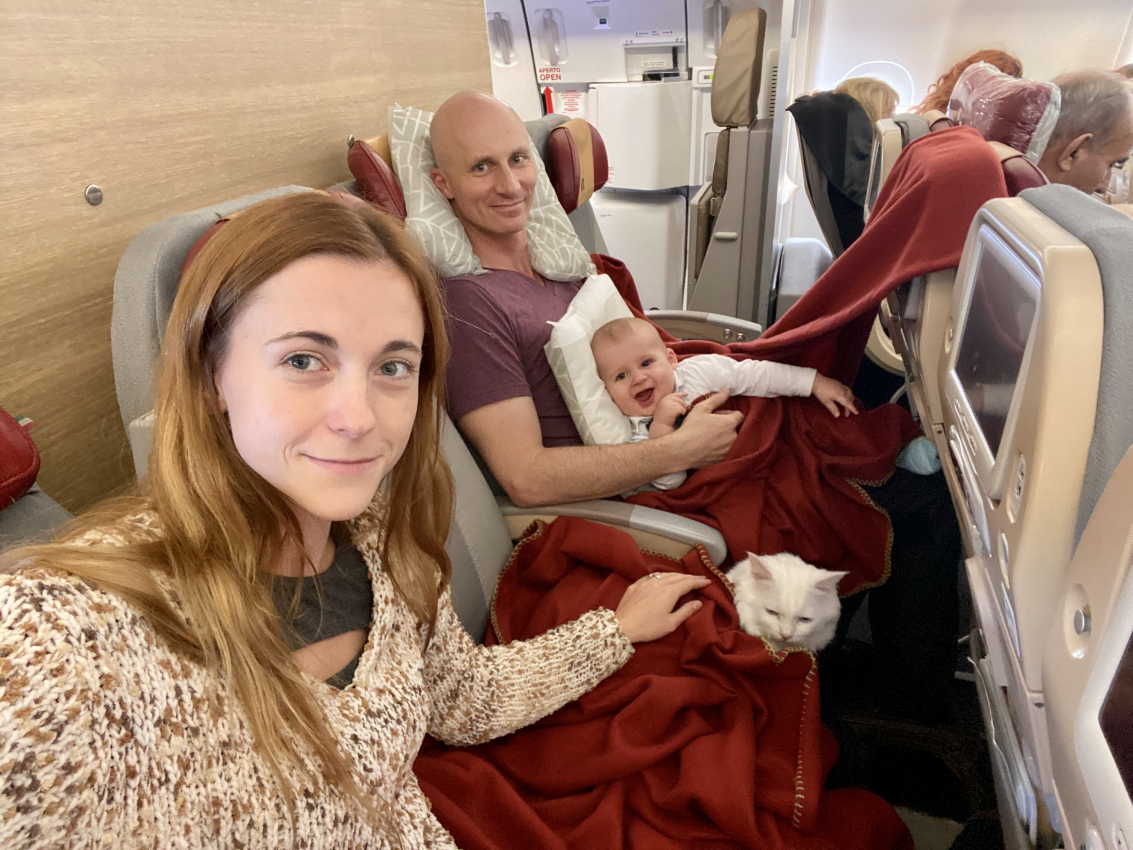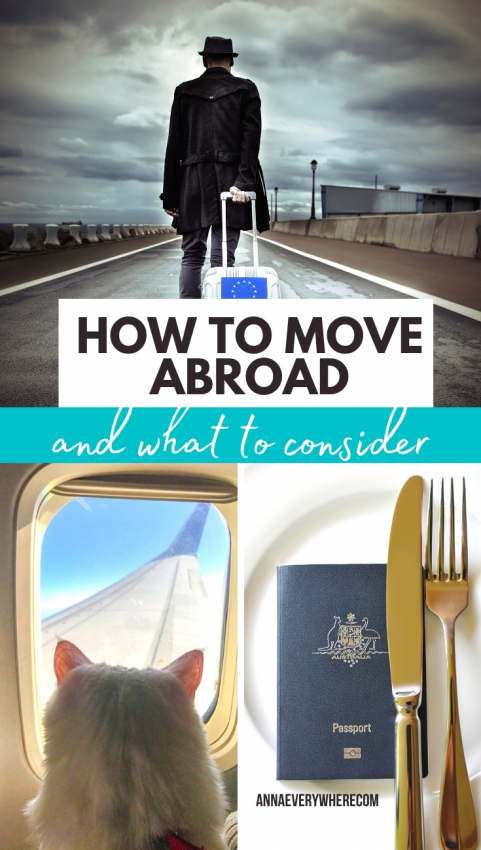How to Move Abroad (& Why It’s More Than Just Packing Your Bags)
How to move out of the US or how to move abroad phrases are surging all over the Internet this year. With what’s going on in the world I don’t blame people they want to move somewhere where they think they might have a better life. However, is it REALLY better elsewhere?
After living on 5 continents in various countries I can honestly say that “the perfect place” doesn’t exist. I often see travel bloggers and influencers (especially American ones) glorifying “living abroad” after only spending a month somewhere living out of Airbnb and not having to deal with what the actual residents deal with.
There’s nothing wrong with living out of a suitcase as a digital nomad, but it doesn’t work for everyone. It’s perfect if you’re healthy, work fully online, preferably from a country that pays in Dollars, Pounds, or Euros, and usually don’t have any dependents.
Truth be told, hopping places on a tourist visa isn’t for everyone. As we saw during COVID-19, it also doesn’t give you any guarantees, and you might get stuck or kicked out of any place instantly.
Moving abroad legally is more than doable (tons of people do it every year), but it requires some serious planning and hassles you need to be ready for.
Moving abroad requires more effort than just packing up and going. What do you need to consider when moving abroad?
How to Move Abroad in 10 Steps

1. Research the Costs & What You Need to Do in Order to Move
While it might be a great romantic idea to move to Barcelona or Rome, you need to make sure that it’s even possible. Many countries, including most European ones actually, don’t allow you to change your status once you’re in-country, so you need to arrange your paperwork BEFORE you even leave your home country.
Consider that moving abroad will cost you money. Visas, lawyers (if you need one), flights, and everything else will cost you up-front. Many places will also ask for higher deposits from foreigners since you have no in-country references. In Italy for example, it was 3 months’ rent + agency fee.
Keep in mind that those online budget calculators are usually giving you lower amounts, so I always recommend adding a decent sum of money to those numbers given.
It might seem tempting to just go with the flow until your tourist visa expires, but becoming a resident has its benefits: no one can really kick you out, you’ll pay taxes in your country of residence and eventually, after a few years you can also apply for citizenship.
2. Are You Willing to Learn the Language?
Some places seem amazing at first sight, but many expats get annoyed that they need a translator for literally everything – starting from renting an apartment to arranging any documents or even going to a doctor.
I know a bunch of frustrated people who moved to the Czech Republic because it’s fun and affordable, just to realize that there’s a lot of red tape regarding the language barrier.
Even in places where the vast majority of people speak fluent English, like the Netherlands, you still need to know basic Dutch to fill out your paperwork, help you understand what’s going on with your bank account, and other things.
Speaking of learning the language – most places around the world require you to obtain a local driver’s license after a year. I could easily exchange my Mexican driver‘s license for a Polish one by going to the Embassy, but there’s no agreement between the US and Europe (apart from certain circumstances like Massachusetts and Germany I believe), which means you need to re-do the written test and practical exam. Needless to say, the test is done in a local language that you need to know sufficiently in order to pass it.

3. Realize That Certain Issues Can Come Up with Time
I still remember people saying how amazing and affordable was to move to Germany or Portugal. Both seemed like a fantastic idea as it was fairly easy to obtain a residency based on self-employed status.
Ironically, it turned out not to be so cheap when at the end of the year everyone got hit with extremely high self-employment and apartment taxes. These days the town of Cascais in Portugal has become very American and as a result, the prices of everything are insanely high and locals started leaving.
It’s also not always the easiest to have the same privileges and rights as locals. Showing up at apartment viewings to compete against 20 other hopefuls is just the way it is in many places and locals usually get priority.
Not to mention that salaries for foreigners are significantly lower and many rentals won’t even consider renting to non-nationals.
We encountered a TON of issues in Italy, even though we all had EU passports. One of them was that we thought we could just ship our car to Italy, since it was already adjusted to European standards and official legal.
Thankfully, we found out beforehand by digging into various sources that while shipping the car isn’t an issue, registering it is basically a mission impossible and our car would mostly stand in the garage unregistered forever.

4. Are You Willing to Deal with Different Healthcare?
Healthcare systems work differently depending on the place. In one place you’ll be able to get certain medications, but in others, you cannot.
To give you a first-hand example, antibiotics in the Netherlands are really only given to those who are at the ER, while in the US you can easily obtain them from your GP. However, also in the Netherlands, you have to have health insurance and pay for it – about 120 EUR a month, and if you try to avoid paying for it, your employer will receive a letter and automatically sign you up for one and deduct the money from your payslip.
When I’m in Europe I’m unable to get my psoriasis medicals, with insurance or self-pay, so I needed to do medical tourism in Mexico.
Before you leave ask your health care professionals for medical records and get all the necessary immunizations. You never know when you might need it all.
Many Americans also falsely claim that healthcare in Europe is free. It’s a myth. The ER might let you skip the bill if you’re a tourist sometimes, but nothing is free, because you pay for it from taxes.
One thing that’s also important to remember is that the EU insurance card while valid it might not be accepted. I was turned away from a few clinics in France with an EU insurance card from the Netherlands because they just weren’t taking it.

5. Can You Find a Job in the Country You’re Going to?
Many places that are sunny, beautiful, and friendly unfortunately deal with huge unemployment. Spain, Italy, Greece, Portugal – just to name a few of the affected places.
It doesn’t mean that you cannot move there and get a job, but the job might be oriented towards specific skills that are needed or you might simply get lucky.
Either way, it won’t be as easy as just going and finding a job somewhere like it is in the US or UK for example. Use credible resources to make sure you’re going to be fine financially when you arrive.
If you want to work remotely for your own company keep in mind that very rarely you’ll be eligible for a regular raise unless the company is 100% remote. That’s something to consider because the costs of living are raising all over the world.
Another thing to keep in mind is that your skills and experience aren’t guaranteed to translate to your adopted country. Some skills, such as fluency in programming are in demand pretty much everywhere. But others, such as being in law, medical fields, or specific local marketing, aren’t sought and might require additional certification or ask you to completely re-do your degree, unfortunately, regardless of your years of experience.
6. Can You Handle Being Away from Friends, Family and Having to Meet New People?
Making new friends as an adult is never easy. It’s fun when you study abroad when everyone is young with a ton of time, but it can get tricky.
In certain expat hubs, like for instance Playa del Carmen in Mexico or Chiang Mai in Thailand, you can make friends easily, but you’ll lose these friends often as quickly as you get them since digital nomads leave a spot every few weeks or months.
It’s exciting to be surrounded by lots of new people for a few years, but it can get old and lonely to constantly say goodbye to people you might never see again.
I know people who moved to Australia just to realize they were ultimately too far from their close friends and moved back somewhere closer.

7. Make Sure You Handle All Banking
If you’re planning on working abroad you naturally need a local bank account. If you’re working for your home country you can think that you can get away with not opening one locally or using TransferWise exclusively.
Note that the IRS can seize your offshore account if your bank has a branch in the United States, so if you’re American you might want to just get a local bank account regardless.
Let me tell you that I’m yet to find a place where I could get away without opening a local bank account. In all the countries I lived in I only never had an account in Mexico because first my jobs paid in cheques I could cash at the bank, but taking money from ATMs from my foreign account later was a pain in the butt considering fees and limits on withdrawals.
Many countries won’t accept AmEx cards. In the Netherlands, many essential places like grocery stores or train ticket booths won’t take cash and they only take Dutch cards with their own chip system, so without a Dutch debit card it was quite annoying.
8. Consider Local Politics and Religion
Many young people say they’re not interested in politics and don’t get involved, but whether you want it or not it can influence your life in a country a lot. Some things might be a deal-breaker.
You may not be legally recognized or get benefits in certain spots, because of your sexual orientation, religion, or beliefs. It might not be the best idea to move to Malaysia if you’re Jewish.
In Utah, we couldn’t buy alcohol at regular supermarkets as it’s a Mormon state. While for me, it’s not an issue, if you’re huge on partying and want to go for bottomless mimosas for brunch it might not be your cup of tea. In the Netherlands every store was closed after 4 pm apart from one day a week when they arranged a shopping night.
When Barbados started offering visas for digital nomads everyone got excited, but then it turned out that they’re very against LGBTQ and won’t issue visas.
9. Are You Able to Import Your Pet?
Not many people would want to leave their pets behind because a pet is a family member. Certain countries have certain requirements you need to comply with to enter, along with checking with an airline whether you can take your pet on that route, rules for in-cabin or as cargo, and arranging documentation.
Our cat traveled to quite a few countries without issues, but if we wanted to move to Bali (for example) this wouldn’t be possible, because it’s forbidden to import pets, if we moved to Hawaii he’d have to quarantine for a month, or in South Africa he would only be allowed to travel there as cargo.
Bringing a pet it’s not impossible but requires some preparation. It’s best to start 90 days in advance as certain vaccines or microchips have to be done several weeks before the flight. It’s almost always a stressful process because paperwork arrives at the last second, or sometimes not at all, so while not impossible the preparation sucks.

10. Make sure you understand schooling options
If you have kids with you, things can get even trickier as there are different education systems in different countries. For example, in the US kids start school at the age of 5 in Kindergarten, while in various European countries (eg. Germany, Poland, France) kids don’t start actual primary school and learning until 6 or 7 years old. As a result, for the first couple of years, kids can be massively ahead of behind as some countries teach cursive and others don’t, some require reading at 5 while others do not until 7, and so on.
International schools frequently might have long waitlists, so you might not necessarily be able to pay for your kids school and let them continue in English or whichever native language they’re used to using.
Another problem you might run into is actual rules concerning schooling, like the fact that in some places homeschooling is illegal. There are also different ages of compulsory education. For example, in France school is compulsory starting at the age of 3 years old.
In the Netherlands, school starts at 4 years old (kids start the day after their 4th birthday throughout the academic year) and while you don’t have to enroll your kid yet, there’s a big chance that almost no schools next to you will have a spot for your kid if you wait until their 5th birthday when it becomes compulsory. You will also be met with a fine of over 100 EUR a day for any day you decide to pull the kid out of school.
Once You Figure Out All of the Above – Do It!
Moving abroad is a great opportunity to learn about new cultures, gain experiences, and potentially more money.
Look at all these factors and prioritize them in order of importance and opportunities for you. Consider what your must-haves are.









Love this article! I have been thinking of doing an uni exchange to either the Netherlands, Finland or Denmark but have not yet decided which. Any suggestions? Also, is it at all possible to get a part-time job(in any of the countries) if you are not fluent in the language?
Plenty of suggestions, but there are so many university and programs in these 3 countries that it’s hard to suggest anything without knowing more details. In the Netherlands, it is hard to find a job, leave alone part-time without any Dutch (even with Dutch is hard unless you’re actually Dutch). Can’t speak for Finland or Denmark as I have no first-hand experience.